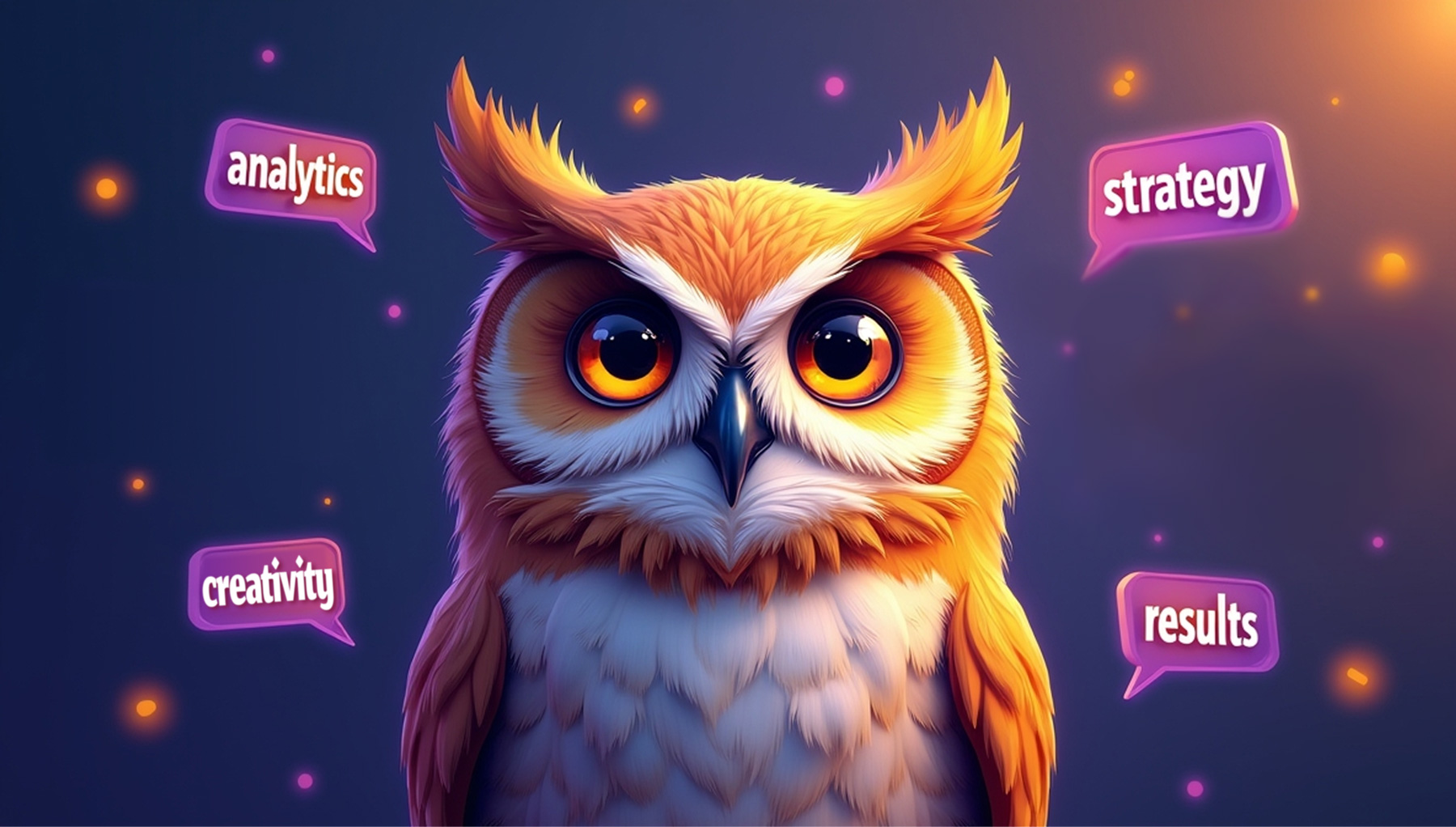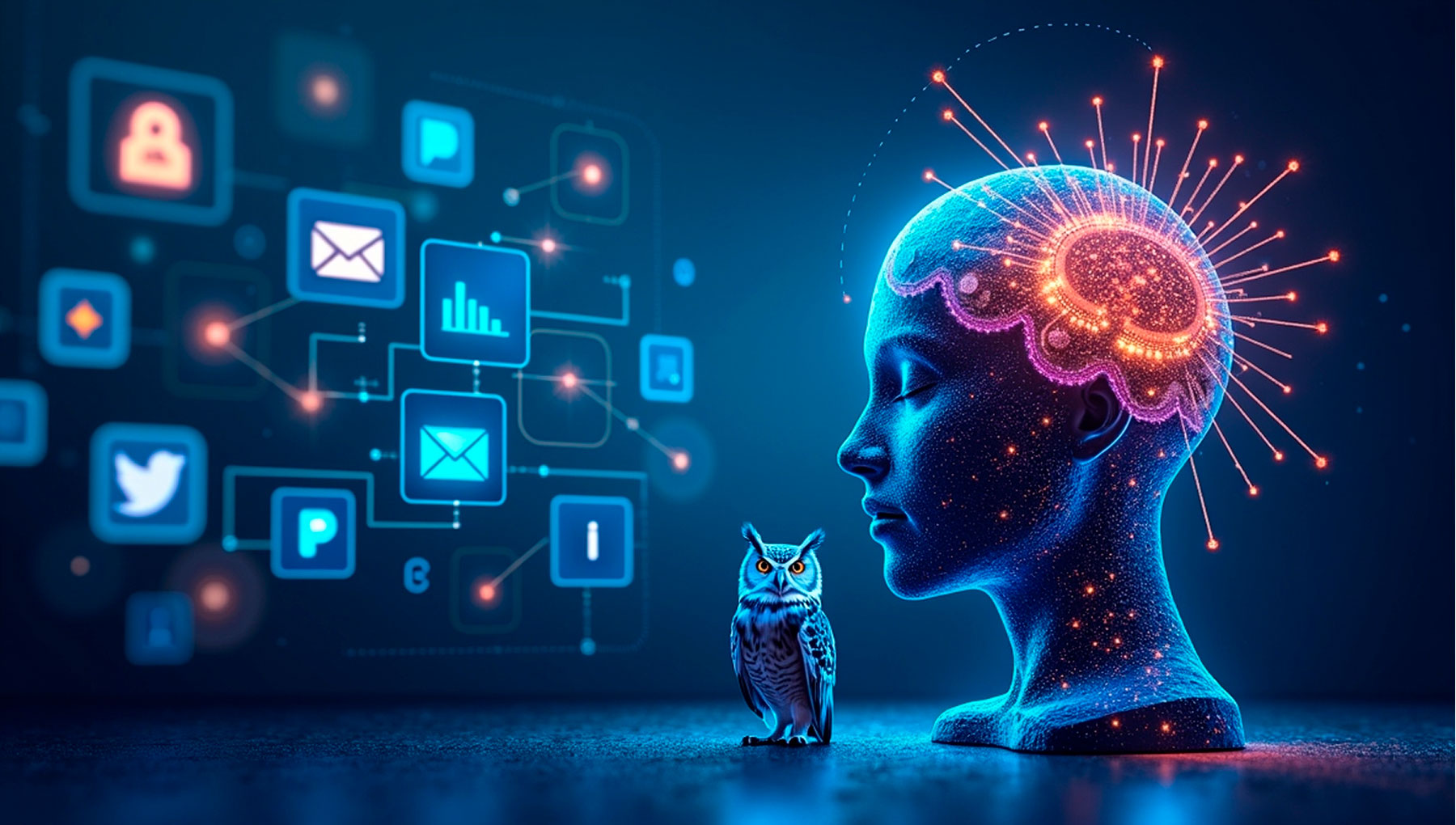The application of artificial intelligence (AI) in marketing is transforming how businesses connect with customers, optimise their operations, and enhance user interactions. In today’s competitive landscape, leveraging AI-driven solutions has become essential for improving promotion efficiency, customer engagement, and personalisation. Various companies using AI in marketing are incorporating AI technologies to improve decision-making processes and streamline their marketing efforts. This article will delve into the best AI marketing examples, showcasing the innovative ways businesses are using AI to drive growth and enhance customer experiences.
AI opportunities in marketing
AI offers numerous opportunities for marketers to improve how they engage with customers and optimise their marketing strategies. One significant advantage of AI is its ability to process and analyse large volumes of data, providing insights that would otherwise be unattainable through traditional methods. By harnessing AI-powered analytics solutions, businesses can gain valuable insights into customer behaviour, which in turn helps optimise marketing initiatives, personalise user interactions, and increase customer retention.
AI also plays a pivotal role in promotion. With the power of machine learning algorithms, businesses can optimise their promotion strategies in real time. These AI solutions help marketers determine the best times to show ads, predict the most effective material for specific audiences, and measure the performance of initiatives across multiple channels. By using AI-based solutions, companies can ensure their promotion budgets are being spent efficiently and can target the right customers with tailored messages.

Furthermore, AI can enhance the customer journey by providing better product recommendations and offering personalised interactions. Through AI-driven chatbots and virtual assistants, businesses can ensure customers receive immediate assistance, reducing response time and improving customer satisfaction. The integration of generative AI in material creation allows businesses to automate tasks like email marketing, social media posts, and website copy, leading to more consistent messaging and improved productivity.
The following section will explore some of the most prominent companies using AI for marketing to achieve these benefits and more.
Examples of AI in marketing
EasyJet
One notable example of AI in marketing is easyJet, the low-cost airline that uses AI-powered solutions to personalise its communication with customers. The airline leverages AI to analyse customer data and predict their preferences, offering targeted promotion and material through digital channels. easyJet uses AI for dynamic pricing, adjusting ticket prices in real time based on demand, competitor prices, and market trends. This helps easyJet remain competitive and offer the best prices to customers.
What can be emphasised from easyJet’s example is the role of AI in enhancing customer interaction by providing timely and relevant product offers, boosting customer loyalty, and increasing sales through personalised marketing efforts.
Mastercard
Mastercard is another example of a company successfully integrating AI into its marketing efforts. The financial services giant uses AI to improve its customer service and enhance user interactions. By utilising machine learning algorithms, Mastercard can predict customer spending habits and offer personalised financial products. The company also uses AI-driven analytics to understand customer sentiment and adapt its marketing strategies accordingly.
One of the key lessons from Mastercard’s example is how data analysis can be leveraged to tailor promotion initiatives, build stronger relationships with customers, and ultimately drive growth by offering more relevant and personalised financial products.
Farfetch
Farfetch, an online luxury fashion retailer, has effectively harnessed AI to optimise its marketing and customer engagement strategies. By using machine learning, Farfetch provides personalised recommendations to customers based on their browsing and purchase histories. AI also helps in automating the creation of material and promotions, allowing the company to offer highly targeted campaigns. Farfetch employs AI to analyse consumer behaviour and trends, ensuring its marketing initiatives are in line with customers’ preferences and increasing the likelihood of sales.
The takeaway from Farfetch’s strategy is the importance of personalisation. AI enables businesses to deliver tailored product recommendations, enhancing the customer interaction and driving revenue through more relevant offers.
Meta

Meta, formerly Facebook, is a leader in AI integration for marketing. The platform uses AI to optimise ad targeting and material delivery. By analysing user data, Meta’s AI can serve ads that are more likely to resonate with specific audiences, resulting in more effective promotion initiatives. The platform’s AI also powers its solutions for ad creative optimisation, automatically adjusting ad elements to enhance performance.
Meta’s example underscores the power of AI-powered solutions in driving user engagement and maximising the effectiveness of digital advertisement initiatives. By utilising AI, Meta is able to personalise interactions and deliver more relevant material, improving the overall customer journey.
Rick’s Custom Fencing & Decking
Rick’s Custom Fencing & Decking has embraced AI to improve its local marketing strategies. The company uses AI to optimise search engine promotion, helping it target the right customers searching for specific services in real time. By integrating AI into its marketing efforts, the company has improved its lead generation and customer acquisition processes.
What makes Rick’s Custom Fencing & Decking a great example is the way it has integrated AI into localised promotion, showcasing how even small businesses can leverage AI to compete more effectively in their markets.
Airbnb
Airbnb is an example of a company that uses AI to improve user interactions and optimise marketing efforts. Through machine learning, Airbnb can personalise its recommendations to users, suggesting properties based on past bookings and search behaviour. AI also plays a role in dynamic pricing, adjusting rental prices based on demand, location, and user preferences.
Airbnb’s use of AI demonstrates the value of personalisation and dynamic pricing in marketing. By using AI to provide more tailored recommendations, the company is able to drive higher conversion rates and enhance client satisfaction.
Walmart
Retail giant Walmart employs AI to optimise its marketing strategies, particularly in relation to client interactions and inventory management. Walmart uses AI to predict purchasing patterns, allowing the company to tailor its marketing messages and promotions to clients more effectively. By using AI-powered analytics, Walmart can create more efficient and targeted advertisement initiatives that align with client interests and shopping habits.

The key takeaway from Walmart’s example is how AI can drive advertisement and material creation while also optimising inventory and pricing, ultimately improving both operational efficiency and client satisfaction.
Grammarly
Grammarly, the AI-powered writing assistant, is a prime example of a company using AI to improve content quality and enhance user interactions. By leveraging natural language processing (NLP) and machine learning, Grammarly provides users with real-time writing suggestions, from grammar corrections to stylistic improvements. The company also uses AI to personalise its recommendations and offer tailored content to users based on their individual writing habits.
Grammarly’s success highlights the importance of AI in content creation and how it can be used to improve promotion efforts by delivering more personalised and relevant material to users.
Google is a leader in AI-driven marketing, using its vast resources to implement AI in several aspects of digital marketing. Through its Google Ads platform, Google leverages machine learning to optimise advertisement initiatives, delivering more relevant ads to users and increasing ROI for businesses. Google also uses AI to improve its search algorithms, ensuring users are served the most relevant content based on their search history and preferences.
Google’s example exemplifies the power of AI in enhancing search engine advertisement and content delivery, making it easier for businesses to reach clients with tailored messages.
DISH Network
DISH Network uses AI to optimise its marketing and client service strategies. By integrating machine learning and data analytics, the company personalises its advertisement efforts and improves client engagement. DISH also uses AI-powered chatbots to provide instant support to clients, enhancing the overall service experience.
DISH Network’s example illustrates how AI can be used to optimise both promotion and client service, improving the overall user interaction and driving brand loyalty.
Banner Health
Banner Health, a leading healthcare provider, uses AI to improve its marketing efforts, particularly in patient engagement and satisfaction. By utilising AI-powered analytics, Banner Health can segment patients based on specific health needs and provide personalised care options. The company also uses AI to optimise content creation, helping deliver targeted health information to patients.
Banner Health’s example demonstrates how AI can be used to personalise advertisement and content in the healthcare industry, driving engagement and improving overall patient outcomes.
Nike
Nike uses AI in various aspects of its marketing strategy. The company employs AI-driven tools to analyse data from its online stores and social media channels, allowing it to deliver personalised ads to consumers based on their browsing and purchasing history. Nike also leverages AI in its supply chain management, optimising product availability and client demand forecasting.

Nike’s use of AI demonstrates how companies using AI for marketing can effectively personalise interactions and streamline operations, ultimately driving sales and client loyalty.
OpenAI
OpenAI, the company behind the GPT series of language models, is also a prominent example of AI in marketing. OpenAI’s technology is utilised by various companies to generate AI-driven content for digital marketing initiatives. This includes creating blog posts, social media copy, and personalised client communications. OpenAI’s models can be used to automate content generation, saving businesses time and effort while ensuring high-quality outputs.
The key takeaway from OpenAI’s example is the ability of generative AI to produce content at scale, allowing businesses to maintain a consistent and personalised voice across all their marketing channels.
Uber
Uber has integrated AI into various aspects of its marketing strategy, particularly in pricing and client service. By using AI to analyse rider demand and traffic patterns, Uber can dynamically adjust prices to ensure optimal earnings while offering competitive rates to clients. Uber also uses AI to optimise its advertisement initiatives, targeting potential riders with personalised offers based on their location and past usage.
Uber’s success with AI demonstrates how companies using AI in marketing can enhance both client interactions and operational efficiency through real-time pricing and targeted promotion efforts.
HubSpot
HubSpot, a leading marketing automation platform, uses AI to streamline its operations and improve its client relationship management (CRM). The company leverages AI to provide personalised recommendations, automate content creation, and optimise advertisement initiatives. HubSpot’s AI tools are particularly valuable for inbound marketing, helping businesses nurture leads and convert them into loyal clients.
HubSpot’s example underscores how AI can enhance marketing automation, improve lead generation, and increase client retention by offering tailored material and promotion strategies.
Spotify
Spotify uses AI to provide personalised music recommendations and enhance user interactions. By analysing user data, Spotify’s AI algorithms suggest playlists, songs, and podcasts based on individual listening habits. The platform also uses AI for targeted advertisements, ensuring users are shown relevant ads based on their preferences and activity on the platform.
Spotify’s use of AI highlights how companies using AI for marketing can optimise user engagement and advertisement strategies by offering tailored content and experiences to individual users.
Facebook, now part of Meta, employs AI to optimise its marketing platform for advertisers. The platform uses machine learning algorithms to help businesses target the right clients with relevant ads based on their interests, behaviours, and demographics. Facebook also uses AI to improve its content moderation and enhance the user interaction on the platform.
Facebook’s example showcases how AI can enhance advertisement strategies by offering businesses better targeting solutions and more efficient ad delivery systems, improving ROI for advertisers.
H3. Coca-Cola
Coca-Cola leverages AI to optimise its marketing strategies, particularly in consumer engagement and content creation. The company uses AI to analyse data from client interactions, identifying trends and preferences to personalise its advertisement initiatives. Coca-Cola also uses AI to optimise supply chain operations and predict product demand, ensuring the right quantities of beverages are available at the right time.

Coca-Cola’s use of AI demonstrates the power of AI-powered analytics and personalised advertisement in the beverage industry, driving growth and client satisfaction.
Yoast
Yoast, a popular SEO plugin for WordPress, uses AI to help businesses optimise their content for search engines. The company employs machine learning algorithms to analyse content quality and provide recommendations for improvement. Yoast’s AI-powered solutions help users optimise their websites for better search engine rankings, ultimately driving more traffic and improving digital marketing efforts.
Yoast’s example illustrates how AI can be used to enhance content marketing strategies by improving SEO efforts and increasing online visibility.
eBay
eBay uses AI to enhance its online marketplace, providing a more personalised experience for users. The platform employs machine learning algorithms to analyse buyer behaviour and deliver more relevant advertisements and product recommendations to its users. eBay also uses AI-powered chatbots to assist clients with inquiries, helping to improve client service response times and satisfaction.
What can be emphasised from eBay’s use of AI is how companies using AI for marketing can improve advertising and client engagement by offering personalised product suggestions and seamless communication through AI-powered solutions.
HubSpot
HubSpot is a powerful inbound marketing platform that uses AI to automate marketing tasks and improve lead generation efforts. By leveraging machine learning, HubSpot personalises advertising and content based on user preferences and behaviours. This AI integration allows businesses to deliver highly relevant messaging to their target audience, improving lead conversion rates and client retention.
HubSpot’s example is a great case for using AI in marketing automation, making it easier for businesses to manage and nurture leads while ensuring that the material and advertisements remain highly relevant and effective.
IBM
IBM uses AI to transform how companies approach digital marketing. The company’s Watson AI platform provides insights into client behaviour, enabling businesses to create more targeted advertisement initiatives and improve client engagement. IBM also uses AI to enhance content creation by automatically generating tailored messages and ads that resonate with different client segments.
IBM’s implementation of AI demonstrates the effectiveness of data analysis and AI-driven recommendations for improving advertising strategies and client interactions across a variety of industries.
Netflix
Netflix has long been a leader in leveraging AI to enhance user interactions. The platform uses machine learning algorithms to analyse viewing habits and suggest content tailored to individual users. Netflix’s AI-driven recommendation engine has played a crucial role in keeping users engaged and reducing churn. The company also uses AI for targeted advertisements on its platform, ensuring that users see relevant ads for products that align with their interests.

Netflix’s use of AI highlights the impact of personalisation and machine learning in creating a highly engaging user interaction. The platform’s recommendation system is one of the most successful AI applications in digital marketing.
Adobe Marketo Engage
Adobe Marketo Engage, a leading marketing automation solution, uses AI to help businesses optimise their advertisement initiatives and enhance client engagement. By leveraging AI-driven analytics, Adobe enables businesses to personalise material and optimise initiatives for the right audience at the right time. The solution’s AI-powered tools help marketers automate tasks, such as email marketing, social media management, and lead nurturing, improving efficiency and effectiveness.
Adobe Marketo Engage’s example highlights the importance of AI in streamlining marketing operations, improving campaign outcomes, and delivering more personalised and targeted promotion.
SEMrush
SEMrush is an AI-powered SEO and digital marketing solution that provides businesses with insights into data, search trends, and competitors’ activities. SEMrush uses AI to generate personalised recommendations, helping companies improve their digital marketing strategies, optimise their material, and increase organic search visibility. The solution’s AI-driven analytics tools are essential for businesses looking to stay ahead of the competition and optimise their advertising efforts.
SEMrush’s example underscores the power of AI in data analysis and its role in improving the performance of digital marketing initiatives by providing actionable insights into search engine optimisation (SEO) and advertisement strategies.
Amazon
Amazon is a pioneer in AI applications within digital marketing, using machine learning to recommend products to clients based on their browsing and purchase history. The platform also employs AI for dynamic pricing, adjusting product prices based on demand, competitor prices, and other factors. Amazon’s AI-driven advertisement solution enables businesses to create highly targeted ads that reach the most relevant audience.
Amazon’s example highlights how AI can be used to personalise user interactions, optimise pricing strategies, and deliver more effective advertising initiatives, leading to increased sales and client loyalty.
Alibaba
Alibaba uses AI to enhance client interactions and optimise marketing efforts. The company’s AI-driven solution analyses data from millions of transactions, allowing it to offer personalised product recommendations and targeted advertising. Alibaba also employs AI to optimise its logistics and supply chain management, ensuring that products are delivered to clients in the most efficient manner possible.
Alibaba’s use of AI showcases how businesses can leverage data to personalise advertising and improve operational efficiency. The company’s AI-powered tools allow it to create tailored experiences for clients while optimising its backend operations.
Starbucks
Starbucks uses AI to personalise the client interaction both in-store and online. By analysing data from its loyalty program, the company uses machine learning to send personalised offers and ads to clients via its mobile app. Starbucks also uses AI to optimise its inventory and supply chain, ensuring that popular products are always available.

Starbucks’ example is a great illustration of how AI can enhance client loyalty and optimise advertising efforts. The company’s use of machine learning to personalise offers and improve inventory management sets it apart in the competitive retail industry.
Calm App
Calm, a popular meditation and wellness app, uses AI to tailor its offerings to users. The app recommends personalised meditation sessions and tracks users’ progress. Calm’s AI system adapts the user interaction by learning from their behaviour and preferences, providing a more engaging and relevant experience. The app also uses AI-driven advertising strategies to reach potential clients based on their interests and activity patterns.
Calm’s use of AI shows how companies can personalise material and advertising to engage users more effectively, particularly in wellness and lifestyle sectors.
BMW
BMW uses AI in digital marketing to improve client engagement and experience. The company uses AI to analyse client data from online interactions and create personalised advertising initiatives. BMW also employs AI-driven solutions to optimise its vehicle recommendations based on user preferences and past interactions.
BMW’s integration of AI into marketing demonstrates the ability to personalise client interactions, improve engagement, and optimise advertising strategies for the automotive industry.
JPMorgan
JPMorgan is using AI to improve its marketing and client engagement strategies. By analysing client data, JPMorgan can create personalised offers and advertising initiatives. AI also plays a role in optimising client service, with chatbots offering immediate assistance to users.
JPMorgan’s use of AI demonstrates the ability of financial services firms to leverage data and AI-driven advertising to engage clients and improve satisfaction.
Nutella
Nutella has leveraged AI in its marketing initiatives, particularly in advertising. The company uses AI to analyse consumer sentiment and create targeted campaigns based on client preferences. Nutella’s AI system also helps in personalising product recommendations to enhance the client experience.
Nutella’s example illustrates how AI can be used in the food and beverage industry to improve advertising efforts and personalise client interactions.
Use MarketOwl to optimise your marketing
In today’s competitive marketing environment, businesses need to stay ahead of the curve and maximise their return on investment (ROI) through efficient strategies. MarketOwl provides the perfect solution for businesses looking to optimise their marketing campaigns by leveraging the power of AI. With its suite of AI-driven solutions, MarketOwl helps companies streamline their operations and make more informed decisions that lead to greater marketing success.

MarketOwl offers several key benefits for businesses across industries, ensuring they can remain competitive and engage clients effectively. The platform provides AI-powered analytics to help businesses better understand data and client behaviour. This enables companies to personalise their marketing efforts, improve promotion strategies, and create tailored material that resonates with their target audience.
Key features of MarketOwl
- AI-driven analytics: MarketOwl’s platform analyses vast amounts of data to provide businesses with actionable insights that can help optimise marketing campaigns. By understanding user behaviours, preferences, and purchasing patterns, companies can adjust their strategies to deliver more relevant advertisements and material to their clients.
- Personalised content creation: One of the standout features of MarketOwl is its ability to assist businesses in creating personalised material. By using AI-powered solutions, MarketOwl automates the content creation process, ensuring that businesses can produce high-quality, targeted material for their audience with minimal effort. This automation is particularly beneficial for email campaigns, social media posts, and website copy.
- Optimising advertising campaigns: With AI, MarketOwl helps businesses optimise their promotion campaigns by targeting the right audience with the most relevant messages. The platform uses machine learning to determine the best times and channels for delivering ads, ensuring that advertising budgets are spent efficiently while maximising engagement.
- Client journey mapping: MarketOwl also assists businesses in mapping out the entire client journey. By understanding how clients interact with brands and which touchpoints lead to conversions, businesses can improve their overall client engagement strategies. With AI, the platform tracks every stage of the user’s interaction with the brand, offering actionable insights to enhance user interactions.
- Real-time campaign adjustments: AI enables MarketOwl to adjust campaigns in real time. Whether it’s tweaking an ad’s material or adjusting product recommendations, the platform can continuously optimise campaigns based on current performance, maximising results throughout the campaign lifecycle.
- Competitor analysis: With MarketOwl, businesses can also gain a competitive edge by monitoring their competitors’ strategies. The platform uses AI-powered algorithms to analyse the digital presence of competitors, providing businesses with insights into what’s working for others and helping them adapt their strategies accordingly.
Why choose MarketOwl?
MarketOwl is a comprehensive solution designed to optimise promotion and material marketing strategies through the power of AI. By leveraging AI-powered solutions, businesses can improve client targeting, enhance material quality, and increase engagement across various platforms. Additionally, the platform allows businesses to track and analyse their campaigns in real time, making it easier to identify opportunities for improvement.
MarketOwl’s ability to automate tasks such as content creation and campaign adjustments saves businesses time and resources, enabling marketing teams to focus on more strategic initiatives. The platform also provides businesses with a clearer understanding of their data, enabling them to make better decisions that drive results.

Incorporating AI into marketing efforts through solutions like MarketOwl is not only a smart business move, but it is also essential for staying competitive in an increasingly digital world. By optimising promotion campaigns and creating more personalised material, companies can increase brand visibility, drive conversions, and foster long-term client relationships.
Effective AI tools
AI post generator for Instagram
Transform your Instagram with our AI manager: create eye-catching images, captions and schedule posts at the optimal time for maximum impact!
AI Ads Manager
AI UA Performance Manager is a game changer in online advertising. It generates a variety of advertising creatives and texts, launches campaigns in Meta and Google, and continuously optimises them for maximum effectiveness within your budget.
AI LinkedIn post generator
Automatically generate and schedule content tailored to your audience’s preferences. A seamless, time-saving solution that requires no extra input or effort.
AI Facebook post generator
Automatically creates and publishes relevant posts for your audience without wasting time or needing prompts.



